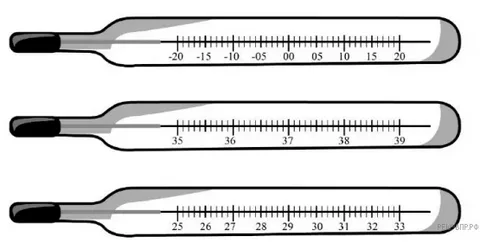Introduction
When it comes to understanding body temperature, converting Celsius to Fahrenheit can be confusing. In this blog, we’ll break down what 36.1°C to °F means, whether it’s considered a fever, and answer common questions about similar temperatures like 36.5°C to °F and 36.2°C to °F.
What is 36.1°C in Fahrenheit?
To convert 36.1°C to °F, you can use the formula: °F = (°C × 9/5) + 32
Plugging in the numbers:
°F = (36.1 × 9/5) + 32
°F = (64.98) + 32
°F = 96.98 So, 36.1°C is equal to 96.98°F.
Is 36.1°C a Fever?
No, 36.1°C is not considered a fever. A normal body temperature typically ranges between 36.1°C to 37.2°C (97°F to 99°F). A fever is usually defined as a body temperature above 38°C (100.4°F). Therefore, 36.1°C is within the normal range and not a cause for concern.
When Should You Worry About a Fever?
A fever is your body’s way of fighting infections. You should consult a doctor if:
Your temperature exceeds 38°C (100.4°F).
The fever lasts more than 3 days.
You experience other symptoms like chills, fatigue, or difficulty breathing.
How to Accurately Measure Body Temperature
To ensure accurate readings:
Use a digital thermometer.
Place it under your tongue, armpit, or ear.
Wait for the beep and check the result.
Common Misconceptions About Body Temperature
Many people think a slight increase in temperature, like 36.5°C to °F (97.7°F), is a fever. However, this is still within the normal range. Always double-check with a doctor if you’re unsure.
Understanding 36.1°C to °F
In summary, 36.1°C to °F is 96.98°F, which is a normal body temperature and not a fever. Similar temperatures like 36.5°C to °F and 36.2°C to °F also fall within the healthy range. Always monitor your symptoms and consult a doctor if you’re concerned about your health.
FAQS
1. Is 36.1°C a fever?
No, 36.1°C is within the normal body temperature range.
2. What is 36.5°C in Fahrenheit?
36.5°C is equal to 97.7°F.
3. Is 36.2°C to °F considered normal?
Yes, 36.2°C is 97.16°F, which is normal.
4. When should I worry about a fever?
If your temperature exceeds 38°C (100.4°F) or you have other symptoms, seek medical advice.


